
Home / Treatments / Carotid Endarterectomy
Coronary angiography is a diagnostic test used to examine the blood vessels in your heart. By injecting a specific dye (contrast material) into the blood vessels, they are made visible on X-rays and other imaging techniques. This helps medical professionals diagnose disorders such as blockages or anomalies in the blood vessels.
Although angiography does not have “signs” or “symptoms” alone, it may have transient side effects.
Common outcomes:
Potential adverse consequences:
You should get medical help immediately if you have serious side effects, including breathing problems or chest pain.
Angiography is performed to: 1. Diagnose Blockages: Identify any blockages or narrowing in blood vessels. 2. Check Blood Flow: Evaluate blood flow to organs and tissues. 3. Find Abnormalities: Detect abnormalities like aneurysms or malformations. 4. Guide Treatment: Help plan or monitor heart disease or stroke treatments. 5. Investigate Symptoms: Investigate unexplained symptoms, such as chest pain or shortness of breath.
Seek your doctor’s attention immediately should you experience any of the following after the angiography procedure: If the bleeding does not stop even after applying the pressure or restarting again If the pain is not going even after taking the painkillers. Redness or Swelling at the skin at the site of catheter insertion. If there is a change in the color or temperature of the area where the catheter was inserted. Inflammation or formation of a lump that is sore to touch at the catheter insertion site. Other minor complications or side effects after the angiography may include: Excessive bleeding at the incision site. Infection at the incision site. A mild to moderate allergic reaction to the contrast dye.
Although most of the time, angiography is safe, there are a few risks to be careful of: An allergic reaction is one possible side effect of the dye used in the test. 2. Tears: Wherever the catheter is inserted, bleeding may occur. 3. Infection: There is a slight chance of infection at the catheter site. 4. Issues with the Kidney: Sometimes, the dye may interfere with kidney function, especially in people who already have kidney issues. 5. Cardiac Problems: In rare cases, the test may result in cardiac issues, particularly if you already have heart disease. These risks will be covered by your doctor, who will also explain how they affect you personally.
You might need to perform a few tests before having an angiography. Pre-Angiography Testing: Physical Examination: A physician will evaluate your general health, including your blood pressure, heart rate, and lung sounds. Blood tests could include examinations for renal function, general health, and blood clotting factors. Electrocardiogram, often known as an EKG or ECG: This test captures your heart's electrical activity. Echocardiogram: This test produces images of your heart by using sound waves. Stress Test: This test assesses how well your heart works under pressure, like when you're exercising or taking medication. Chest X-ray: This test can help identify abnormalities in your lungs or heart.
Angiography Treatment Procedure 1. Preparation - The patient is asked to fast for a few hours before the procedure. - Local anaesthetia is administered to numb the area (typically the arm or groin). 2. Catheter Insertion—A thin tube (catheter) is inserted into a blood vessel through the numbed area. 3. Dye Injection – Blood vessels are made more visible in X-ray pictures by injecting a contrast dye through the catheter. 4. Imaging—X-rays or CT scans are performed to visualize blood flow and detect obstructions or anomalies in the arteries. 5. Completion—After the imaging is finished, pressure is applied to stop bleeding, and the catheter is removed. - After a few hours of observation, the patient can typically return home the same day.
Dos and Don'ts for Angiography – Follow directions: Comply with your doctor's pre-test instructions, including any fasting requirements. Notify your physician: Provide information about allergies, prescription drugs, or medical issues. Remain composed: Remain calm throughout the process; it's usually not painful or dangerous. Drink plenty of water: Drinking plenty of water will aid in the dye's removal following the treatment. Watch for problems: Report any strange symptoms, such as bleeding at the catheter site, oedema, or chest pain. Don’ts for Angiography Eat nothing: Refrain from eating or drinking anything for a few hours prior to the test. Don’t drive Avoid taking specific medications: As directed by your physician, stay away from drugs such as blood thinners. Make plans for a driver to accompany you home after the surgery.
Press Enclave Road, Saket, New Delhi
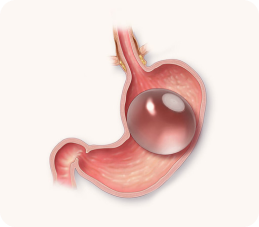
Near Radisson Blu Hotel, Sector 1, Vaishali Ghaziabad, 201012 India

Andheri, Mumbai

Artemis Hospitals Sector 51, Gurugram 122001 Haryana, India.

By using our services, your hospital bill does not increase. In fact, on your behalf, we negotiate with hospitals to give you the Lowest Prices
Get ConsultationSTEP 2
Let us know your details and preferences. We maintain absolute data confidentiality. All your health records are safe, and privacy is maintained.
STEP 3
A dedicated counsellor will help you with the Best Hospital & Doctors at the lowest possible Prices.
STEP 4
While you decide on the treatment plan, we assist you with priority appointments, Visa, Documentation, Hotel & other Logistics.
STEP 5
Our team assists you with all your local requirements like Hospitalization, Hotel Stay, Transportation, Food, Forex, Lab Tests, Medicines, etc.
STEP 6
We ensure a smooth discharge process. We also assist you in tallying your bills at the hospital, all necessary documentation, and your return trip.
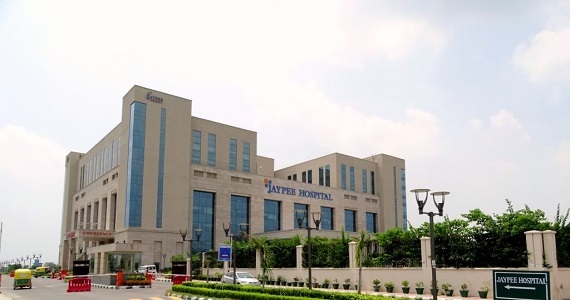



Max Super Speciality Hospital, Saket, is a large hospital in South Delhi known for providing excellent healthcare.
It has over 530 beds and is considered one of the top hospitals in India. The hospital has two main sections: the East Block, run by the Devki Devi Foundation, and the West Block, managed by Max Healthcare Institute Limited (MHIL). The hospital has advanced technology for diagnosing and treating patients. It's one of the leading hospitals in India and Asia. The doctors at Max Super Speciality Hospital have helped over 3.4 million patients with various medical needs in both the East and West wings. The East Wing offers specialized care for heart health, cancer treatment, and organ transplants such as heart, lung, and bone marrow. It also provides general surgeries, including minimally invasive and weight loss procedures. The West Wing focuses on sp...
Max Super Speciality Hospital, Saket, is a large hospital in South Delhi known for providing excellent healthcare.
It has over 530 beds and is considered one of the top hospitals in India. The hospital has two main sections: the East Block, run by the Devki Devi Foundation, and the West Block, managed by Max Healthcare Institute Limited (MHIL). The hospital has advanced technology for diagnosing and treating patients. It's one of the leading hospitals in India and Asia. The doctors at Max Super Speciality Hospital have helped over 3.4 million patients with various medical needs in both the East and West wings. The East Wing offers specialized care for heart health, cancer treatment, and organ transplants such as heart, lung, and bone marrow. It also provides general surgeries, including minimally invasive and weight loss procedures. The West Wing focuses on specialties like Nephrology (kidney care), Neurology (brain and nervous system care), Neurosurgery, Rheumatology (joint and autoimmune diseases), and Urology (urinary system). It also offers liver and kidney transplant services and Plastic and Reconstructive Surgery. Max Super Speciality Hospital is well-known for using the latest technologies to improve its diagnosis and treatment of patients. It has received important accreditations from NABH (National Accreditation Board for Hospitals & Healthcare Providers) and JCI (Joint Commission International), which means it meets high standards for caring for patients and keeping them safe. Max Super Speciality Hospital has a great team of doctors and nurses who work together to care for patients. They can perform many different kinds of important medical procedures, like brain and heart surgeries, cancer treatments, and even organ transplants.
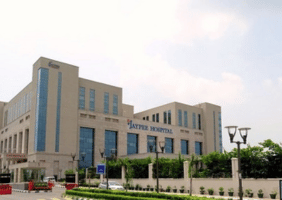


Max Super Specialty Hospital, Vaishali, Ghaziabad is a well-known hospital with over 370 beds.
They offer a wide range of medical services including cancer treatment, heart care, bone and joint treatment, organ transplants, urinary system care, stomach and intestine care, lung care, plastic surgery, hormone-related issues, and diabetes care.
The hospital has 128 intensive care beds, 16 HDU general beds, and 14 modern operating rooms.
They have a team of over 259 highly skilled doctors and 610 dedicated nurses who are committed to providing excellent care to every patient. With 28 different medical specialties and access to advanced technology, the hospital...
Max Super Specialty Hospital, Vaishali, Ghaziabad is a well-known hospital with over 370 beds.
They offer a wide range of medical services including cancer treatment, heart care, bone and joint treatment, organ transplants, urinary system care, stomach and intestine care, lung care, plastic surgery, hormone-related issues, and diabetes care.
The hospital has 128 intensive care beds, 16 HDU general beds, and 14 modern operating rooms.
They have a team of over 259 highly skilled doctors and 610 dedicated nurses who are committed to providing excellent care to every patient. With 28 different medical specialties and access to advanced technology, the hospital is capable of handling complex treatments such as brain and nerve procedures, cancer treatments, heart and bone surgeries, as well as reproductive health services.
Max Super Specialty Hospital, Vaishali, Ghaziabad is widely recognized as one of the top healthcare institutions in the Delhi-NCR region and has received numerous awards for its outstanding facilities, advanced technology, and strict safety measures.
The hospital is accredited by the National Accreditation Board for Hospitals and Healthcare Providers (NABH) and the National Accreditation Board for Testing and Calibration Laboratories (NABL), highlighting its dedication to maintaining high standards of quality and safety.
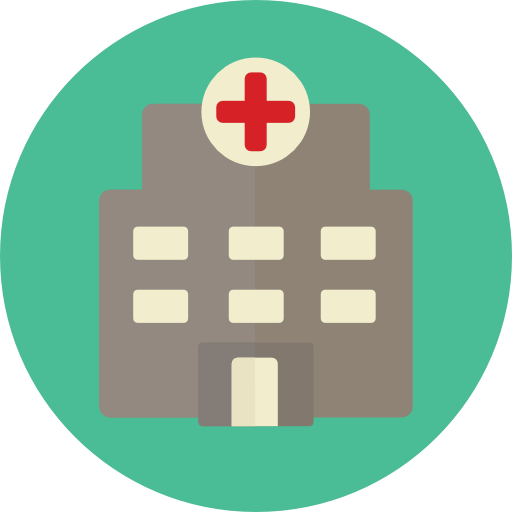
Ver Good...
Ver Good Hospital



Artemis Hospital, established in 2007, is the first JCI and NABH-accredited Hospital in Gurgaon. It is spread across 9 acres and is a 400-plus-bed multi-specialty hospital located in Gurgaon, India. Artemis Hospital offers expertise in advanced medical and surgical interventions, a comprehensive mix of inpatient and outpatient services, and incorporates modern technology in the hands of renowne...
Artemis Hospital, established in 2007, is the first JCI and NABH-accredited Hospital in Gurgaon. It is spread across 9 acres and is a 400-plus-bed multi-specialty hospital located in Gurgaon, India. Artemis Hospital offers expertise in advanced medical and surgical interventions, a comprehensive mix of inpatient and outpatient services, and incorporates modern technology in the hands of renowned medical professionals to set new standards in healthcare. The hospital practices and procedures adhere to global standards and are benchmarked against the best in the world. The hospital is known for providing the best services in a warm, open, patient-centric environment, combined with affordability, which has contributed to its reputation as one of the best hospitals in the country.
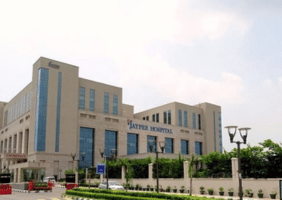

Product Designer
Duis aute irure dolor in reprehenderit in voluptate velit esse cillum dolore fugiat sunt culpa officia deserunt mollit anim est laborum.
Product Designer
Duis aute irure dolor in reprehenderit in voluptate velit esse cillum dolore fugiat sunt culpa officia deserunt mollit anim est laborum.
Product Designer
Duis aute irure dolor in reprehenderit in voluptate velit esse cillum dolore fugiat sunt culpa officia deserunt mollit anim est laborum.

Note : VivaVel does not provide medical advice, diagnosis or treatment. The services and information offered on www.vivavel.com are intended solely for informational purposes and cannot replace the professional consultation or treatment by a physician. All Copyrights are reserved with VivaVel. VivaVel does not allow copying and cloning of its webpages and contents. VivaVel reserves the right to follow the legal procedures to protect its intellectual property.
Copyright © 2024 VivaVel.com . All Rights Reserve.


